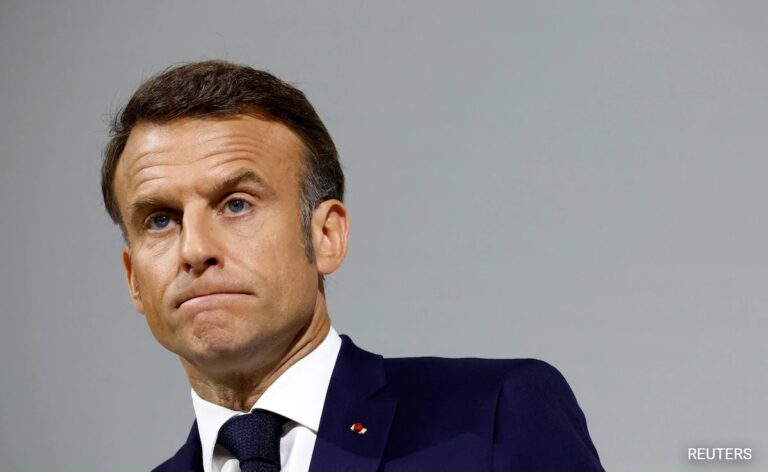President Emmanuel Macron has averted the nightmare scenario of the far right taking power in France, but he faces the unprecedented challenge of how to lead the country and the remainder of his presidency through an uncertain future.
Macron’s centrist party performed stronger than expected in the parliamentary elections and is expected to come second to a resurgent left-wing party, while the far-right, which won the first round on June 30, came in third.
But as he prepares to head to the United States for the NATO summit in Washington, Trump now faces a host of headaches, including a left that has come to believe it has the right to govern, his own unpopularity and open opposition from some of his most influential allies.
There is still anger among Macron’s supporters over his decision to rush parliamentary elections three years earlier than planned after his party suffered a crushing defeat in last month’s European elections.
The president argued that French politics required “clarification”.
“The decision to dissolve the National Assembly was meant to be an opportunity for clarification, but instead it has created more uncertainty,” former prime minister Edouard Philippe said on Sunday in unusually sharp terms.
Prime Minister Gabriel Attal, who had announced his intention to resign on Monday but said he was prepared to stay on, made an unusual statement of opposition after the election, saying he “did not choose this dissolution.”
“Current Question”
The government’s strategy of forming a center-left so-called Republican Front and working together to block the far-right appears to have worked.
But the elections will mark a turning point for Macron, who has three more years in office until 2027, and a highly chaotic new parliament will inevitably take on a much more prominent role.
Macron does not appear to be in a rush to make any dramatic decisions this time, with aides telling media that the president wants to analyse the full results before jumping to any conclusions.
The president is “confident and not looking to win a minority,” the aide said. “The question now is, who’s going to be in power and who’s going to win a majority.”
Prime Minister Philippe has suggested the possibility of forming a broad-based coalition government that would include a range of centre-right, left and right parties, but exclude the far-right Rally National (RN) and the far-left Stand Up to France (LFI) parties.
So far, the left-wing New Popular Front (NFP) has not split, even though the LFI’s firebrand leader, Jean-Luc Mélenchon, is a constant source of tension.
Foreign Minister Stephane Séjourne, who heads Macron’s party, ruled out the possibility of Mélenchon and “a number of his allies” governing France.
But Laurent Wauquier, a leading traditional right-wing lawmaker who won a seat, appeared to rule out forming a coalition government with Macron.
“The tide is rising”
Macron’s own popularity was so low that he sat out the final week of the campaign entirely and said not a word in public when the overwhelmingly popular Attal took the lead.
He mingled with supporters in Le Touquet after Sunday’s vote but did not repeat his behaviour during the first round on June 30, when he strolled through the fashionable Channel resort in a bomber jacket and baseball cap in a move seen as arrogant by some supporters.
Under him, the political maneuvering will intensify: Interior Minister Gerald Darmanin, who won a seat, has made clear his plans to become a leading voice in the new parliament, possibly aligning himself with the Philippe faction.
And although the far-right lost the election, its three-time presidential candidate, Marine Le Pen, said she did not believe it would affect her ambitions of winning the Elysee Palace in 2027.
“The tide is rising. This time it did not rise enough, but the tide continues to rise and as a result our victory has only been delayed,” Le Pen said.
(Except for the headline, this story has not been edited by NDTV staff and is published from a syndicated feed.)
Today’s Featured Video
Kuldeep Yadav shares memories of World Cup win, marriage and many more

